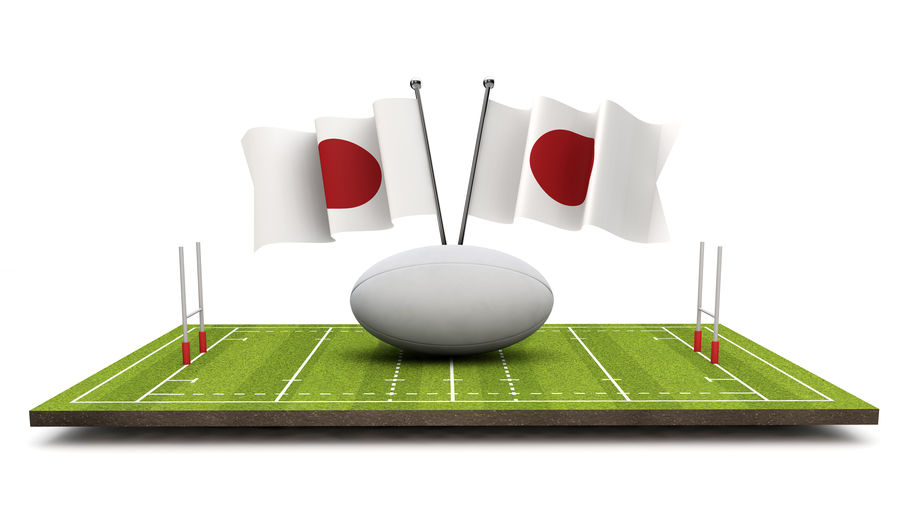Japan Rugby Team Players Nationalities

Japan Rugby Team Players Nationalities
Nationalities of Foreign Players in the Japanese National Rugby Team (2023)
The Japanese national rugby team has a long history of welcoming foreign players into the fold. This is due in part to the fact that Japan is a relatively small country with a limited pool of players. However, it is also due to the fact that the Japanese rugby union is committed to developing the sport at all levels, including the international level.
The following is a list of foreign players and their nationalities who are currently playing for the Japanese national team:
| Name | Nationality |
| Craig Miller | New Zealand |
| Sione Halasili | Tonga |
| Asaeli Ai Valu | Tonga |
| Amanaki Saumaki | Tonga |
| Warner Dearns | New Zealand |
| Jack Cornelsen | Australia |
| Amato Fakatava | Tonga |
| Ben Carter | Thailand |
| Peter Labuschagne | South Africa |
| Michael Leitch | New Zealand* |
| Dylan Riley | South Africa |
| Jone Nakabula | Fiji |
| Siosaia Fifita | Tonga |
| Sesimi Masirewa | Fiji |
| Lomano Lava Lemeki | New Zealand |
| Jiwon Gu | Korea |
*Michael Leitch became a naturalized citizen of Japan.
The Role of Foreign Players in the Japanese National Rugby Team (2023)
The 2019 Rugby World Cup was a huge success for Japan, with the team reaching the quarterfinals for the first time in history. One of the key factors in this success was the role of foreign players.
In the 2023 World Cup, foreign players make up 38.7% of the Japanese national team, the highest percentage ever. This begs the question: why does Japan have so many foreign players?
Why Japanese rugby team has so many foreign players
Japan wants to have results. Besides this, there are three main reasons why Japan has many rugby players from other countries.
- The Japanese rugby league is becoming more professional. The Japan Rugby League One (JRU), which was founded in 2022, is the top professional rugby union competition in Japan. The league has attracted some of the best foreign players in the world, who are drawn to Japan by the high salaries and the opportunity to play in a competitive league.
- The Japanese rugby union is committed to developing the sport. The Japan Rugby Football Union (JRFU) has a policy of recruiting foreign players in order to improve the standard of rugby in Japan. The JRFU believes that foreign players can help to raise the level of competition and provide role models for young Japanese players.
- Japan is a welcoming country for foreigners. Japan is known for its welcoming and hospitable culture. This makes it an attractive destination for foreign players, who are often able to integrate into Japanese society easily.
The use of foreign players by the Japanese national rugby team is not without its critics. Some people argue that it gives Japan an unfair advantage and that it prevents Japanese players from getting a chance to play. However, the JRFU believes that the use of foreign players is necessary to help Japan become a leading rugby nation.
How are numerous foreign players able to represent Japan in rugby?
Many people wonder how so many foreign players qualify to represent a country they are not originally from. While, in most sports, representing a country typically requires an athlete to hold its nationality, rugby diverges from this norm due to its unique eligibility criteria, allowing for more inclusivity and diversity.
Foreign players can become members of a national rugby team if they fulfill at least one of the following conditions:
- The player was born in the country (or region).
- One of the player’s parents or grandparents was born in the country (or region).
- The player has resided in the country (or region) continuously for at least five years.
This rule is not exclusive to Japan; many other countries also embrace foreign athletes in their national rugby teams under similar conditions, fostering international representation.

Foreign players are easily identifiable by their appearance and names
Japan is a relatively homogeneous country, so foreign players stand out from the crowd. Japanese people can easily identify foreign players by their appearance or their names. On the other hand, when Japanese people look at other countries, they may not be able to tell the difference between foreign players and local players. This may lead some Japanese people to believe that Japan has an unusually high number of foreign players.
The concept of “foreign help” in sports
This may be a legacy of baseball, but in Japanese sports, foreign players are often seen as “foreign help.” This can lead to the belief that foreign players are not really Japanese and that they are not as committed to the team as Japanese players.
However, it is important to remember that many of the foreign players who have played for Japan have come to the country to pursue their dreams of playing rugby. They have also put in a lot of hard work and dedication to become part of the team.
The players have given up their chance to play for their home countries to represent Japan
Many foreign players who have played for Japan have had to make the difficult decision of whether to represent their home country or Japan. Some of these players have chosen to represent Japan even though it meant giving up their chance to play for their home country.
Of course, not everyone agrees with the presence of foreign players in the Japanese national team. However, there is no doubt that they have played a major role in the team’s success. Hopefully foreign players will continue to contribute to the development of Japanese rugby in the future.
Foreign players have played a significant role in strengthening the Japanese national team. They have brought their physical strength and skills to the team, and they have also helped to raise the level of competition in the Japanese domestic league.
The presence of foreign players has also helped to broaden the appeal of rugby in Japan. When Japanese fans see foreign players playing at a high level, it inspires them to take up the sport themselves.










